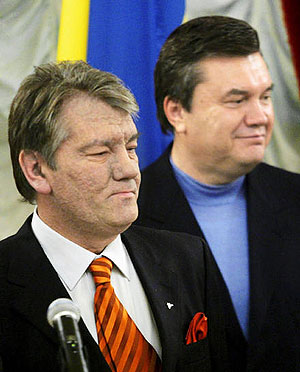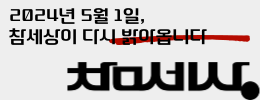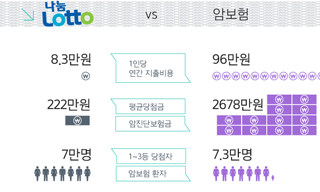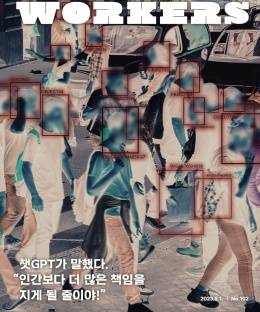 |
 좌:야당후보 빅토르 유슈첸코, 우: 현총리인 여당 후보 빅토르 야누코비치 사진 (출처: AP통신) 좌:야당후보 빅토르 유슈첸코, 우: 현총리인 여당 후보 빅토르 야누코비치 사진 (출처: AP통신) |
이번 사태에서 서방쪽을 응원할지, 아니면 러시아쪽을 응원할지는 중요한 문제가 아니다. 우리에게 일차적으로 중요한 것은, 앞으로 동유럽의 정치 지형에 적지 않은 영향을 끼칠 우크라이나 사태를 객관적으로 파악하는 것이다.
이런 취지에서 서방언론들이 철저히 외면하고 있는 한 영국 인권단체의 선거감시 보고서를 번역해서 소개한다. '브리티시 헬싱키 인권그룹'이라는 이 단체는 우리에게는 낯설지만, 동유럽 지역에서 다양한 활동을 벌이고 있으며, 무엇보다 자신들이 직접 눈으로 확인한 것만 보고서에 담는다는 단체이다. 이 점이야말로 이 보고서의 가장 큰 의미라고 할 수 있다.
다음은 보고서 전문을 번역한 것이다.
[우크라이나 대통령 선거 2차 결선 투표 감시 보고서 초안]
2004년 11월24일
논란이 되고 있는 우크라이나 대통령 선거 2차 결선 투표에 대한 '브리티시 헬싱키 인권그룹' 선거감시단의 이 보고서 초안은 현재 (서방) 언론들이 널리 퍼뜨리고 있는 이미지 곧 야당 후보쪽은 깨끗한 선거를 치렀지만 정부쪽에서 선거 부정을 저질렀다는 것에 도전하는 내용이다. 이 보고서는 우리가 직접 눈으로 확인한 것들에 기반한 것이다.
- * -
브리티시 헬싱키 인권 그룹(BHHRG)은 2004년 11월21일 우크라이나 대통령 선거 결선 투표에 감시단을 파견했다. 감시단은 키예프(Kiev, 중부에 위치한 이 나라의 수도 :옮긴이), 체르니고프(Chernigov, 키예프 북동쪽의 벨로루시 국경 인근 지역 :옮긴이), 트란스카르파티아(Transcarpathia, 가장 서쪽의 체코 인접지역 : 옮긴이) 지역에서 선거를 감시했고 개표 감시는 키예프와 우주고로드(Uzhgorod, 가장 서쪽인 트란스카르파티아의 주도 : 옮긴이)에서 실시했다.
북대서양조약기구(NATO)와 유럽연합 소속 국가를 중심으로 한 유럽안보협력기구(OSCE)가 배치한 전문 정치인들과 외교관들이 비난한 것과 반대로, 우리 단체 감시단들은 정부 차원의 조작이나 야당 계열 언론 탄압의 증거를 보지 못했다. 총리인 빅토르 야누코비치(Viktor Yanukovich)가 동남부 우크라이나 지역에서 이상할 정도로 많은 득표를 했다는 보고가 있었지만, 서부 우크라이나에서는 유슈첸코(Yushchenko) 후보가 90%의 득표를 했다는 사실에는 관심이 덜 집중됐다.
서방 언론들은 우크라이나에서 야당이 방송에서 철저하게 외면당했다고 주장했지만, 서부 우크라이나 지역에서는 상황이 정반대였다. 선거 전날밤, 후보를 홍보하지 못하도록 하는 법을 명백히 위반한 이른바 '사회 정보' 광고들이 국영 텔레비전을 통해서 잇따라 방송됐다. 이 광고에는 유러비전 음악상 수상자인 루슬라나(Ruslana) 같은 유명 대중가수들이 유슈첸코 후보를 상징하는 오렌지색 옷을 입고서 사람들에게 투표를 독려하는 내용이다.
우리 단체가 비록 1차 선거와 2차 선거에서 명백한 법 위반을 직접 목격하지는 못했지만, 우리 단체 감시단원들은 투표소 내부의 분위기가 명백하게 바뀌었다는 점에 놀랐다. 특히 중부 우크라이나 지역에서 그랬다. 1차 선거 때는 투표일 내내 여유있고 질서있는 분위기였다. 하지만 2차 선거 때는 상황이 약간 긴장됐고 혼란스러웠다. 우리 단체 감시 결과, 2차 선거에서 상황이 이렇게 바뀐 주 요인은 현지 선거참관인이 너무 많은 탓이었다. 이들은 선거 절차에 부적절한 영향을 발휘했고 어떤 경우는 투표자들을 위협하는 요인이 되기도 했다. 투표소의 선거참관인 대다수는 빅토르 유슈첸코 후보쪽 인물들이었다.
투표함이 투명해서, 이들 선거참관인들은 사람들이 어떻게 투표하는지 자주 볼 수 있었다. 유럽안보협력기구가 승인한 혁신이라는 건, 특정 지역에서 소수의 지지를 받는 후보쪽 지지자들을 위협하는 게 훨씬 쉽게 만드는 장치였다. 왜냐하면 소수 후보쪽 지지자들은 자신이 어느 후보를 찍었는지가 남들에게 알려지는 걸 더 꺼리게 마련이기 때문이다.
우크라이나 선거법은 선거 후보와 정당만 선거참관인을 둘 수 있도록 허용하고 비정부 기구에는 참관인을 허용하지 않는다. 하지만 참관인을 언론인으로 위장해서 배치할 수 있다. 예를 들어, 서방이 후원하는 우크라이나유권자위원회(KVU)는 명백히 야당 후보에 동조하는데, 우크라이나 전역에 걸쳐서 자기 조직의 기관지인 <토치카 조라>(Tochka Zora)의 '통신원' 명목으로 참관단을 파견했다. 10월31일 우리 단체는 어디서도 이 기관지쪽 사람들을 만날 수 없었지만, 11월21일에는 이런 언론인-참관단을 중부 우크라이나에서 아주 많이 볼 수 있었다. 예를 들어 체르니고프 11/208 투표소에서는 6명의 언론-참관인이 모두 야당쪽 신문 사람들이었고 그 가운데 <토치카 조라> 관계자는 투표가 어떻게 진행되는지를 투표함 바로 옆에서 감시했다. 2차 선거의 투표용지가 1차 때보다 훨씬 작았고 투명한 투표함에 넣기 전에 봉투에 담지 않는 방식으로 진행됐기에, 투표의 비밀 유지가 손상됐다. 이런 상황에서는, 젊은 <토치카 조라>의 통신원이 선관위원장보다도 더 강한 통제 권한을 발휘했다.
체르니고프 7/208 투표소에서는 7명의 언론-참관인 모두가 야당쪽 신문을 대표하는 이들이었고, 어떤 이는 유슈첸코쪽 선거홍보용으로 일시적으로 발행되는 신문인 <타크>(Tak)(유슈첸코의 슬로건인 '예스'를 뜻함)를 대표하는 사람이기도 했다. 우리 단체가 목격한 11월21일의 선거 분위기를 상징적으로 보여주는 장면으로 이런 장면이 있다. 긴장한 듯한 나이든 여성이 기표소에서 나와서 투표함 뒤에 바로 서있는 야당쪽 참관인 3명에게 다가가서는 "내가 제대로 기표를 했나요?"라고 물었다. 한 참관인이 투표 용지를 검토해 빅토르 유슈첸코를 찍은 걸 보고는 "네"라고 답했다. 이 여성의 펼친 투표용지는 투명한 투표함에 넣은 뒤에도 잘 보였다.
야당쪽 언론인/참관인들은, 우리 단체 감시단들이 방문한 트란스카르파티아 지역에서는 명백히 없었다. 무카체보(Mukachevo)의 출구조사자들은 유슈첸코 지지자들이라는 걸 시인했으며 그들의 출구조사는 단순한 방식으로 진행됐다. 나이나 계급 등을 무시한 채 단순히 20명에 한명씩을 선택해서 조사했는데 투표자의 40%는 답변을 거부했다. 하지만 조사에 응한 사람 가운데 80%는 유슈첸코를 찍었다고 밝혔다. 이런 출구조사는 미국 플로리다와 오하이오에서 케리가 부시를 이길 것이라고 예측했던 출구조사에 비해서도 훨씬 비과학적이다.
우주고로드(Uzhgorod) 대학에 설치된 투표소에서는 젊은 남성 유슈첸코쪽 참관인들이 투표소 입구와 투표함 주변에 모여있었다. 유럽안보협력기구의 가이드라인은 이런 허가받지 않은 사람들이 있으면 안된다고 규정하고 있다. 이 투표소 선거관리위원장은, 선관위원 4명이 유수첸코쪽 참관인들의 업무를 방해해서 법률가들이 개입하는 사태를 유발했다고 밝혔다. 우리가 다른 위원들에게 이런 혐의에 대해 물어봤더니, 그들은 아연실색해서는 그런 일이 전혀 없었다고 말했다. 선관위원장은 우리 감시단원이 다른 증인들에게 물어봄으로써 자신이 상세히 이야기해준 위반 사실을 검증하려고 한 데 대해 충격을 받은 듯 했으나, 제대로 된 감시 활동이라면 누군가의 주장을 의심없이 수용해서는 안된다.
[결론] 동부 상황이 어떠했든지 간에, 우리 단체의 감시단이 보기에 중부 우크라이나와 서부 우크라이나 지역은 거의 전적으로 야당 세력이 통제하고 있다는 게 분명했다. 방송들은 이 지역에서 유슈첸코 후보에 경도된 태도를 보였다. 특히 서부 우크라이나에서는 야누코비치 후보의 모습이 아예 보이지 않았다. 심지어 그가 투표 당일 투표하는 장면조차 방송되지 않았다. 정부만 선거에 부적절한 영향을 끼칠 장치들이 있다고 생각하는 건 너무 순진한 것이다. 우리 단체가 목격한 것으로 볼 때, 야당은 많은 지역에서 선거 절차에 적절하지 않은 통제를 가했다. 그래서 정부뿐 아니라 야당조차 자신들이 통제하는 지역에서 법을 어기고 선거를 조작했을지 모른다는 우려를 낳았다.
우리 단체 감시단이 방문한 지역에서는 이른바 "행정-자원"이 야당 지배 아래 있는 듯했고, 정부 아래 있지 않는 듯 했다. 그리고 이런 상황은 투표자들을 겁먹게 할 수도 있었다. 결국 일요일(11월21일 :옮긴이) 이후 일부 서부지역의 경찰과 보안 관계자들은 '대통령' 유슈첸코에게 충성을 선언했다.
서방 정부들과 유럽안보협력기구 소속 선거 감시단 가운데 서방 정부에서 지명한 감시단원들이 공개적으로 편파성을 드러냈고, 일부 감시단원은 야당의 선거유세에까지 등장했기에, 이들의 감시결과 보고를 신뢰하는 건 합리적이지 않다.
우려가 있기는 하지만, 우리 단체는 우크라이나의 2004년 대선 최종 결과가 전반적으로 볼 때 대중들의 의사를 제대로 반영하지 않은 것이라고 믿을 이유를 찾을 수 없다. 선거는 제대로 된 후보 선출, 활발한 선거운동, 높은 선거 참여를 보여줬다. 우크라이나의 여론이 극도로 양분됐었다는 건 분명하다. 이는 선거에서 패배한 후보를 지지했던 많은 이들이 패배를 받아들이기 어렵게 한다는 걸 의미할 수 있다. 외국인들은 자신들이 아낌없이 후원한 이가 선거에서 진 것으로 드러났다고 해서 내부의 갈등을 부추겨서는 안된다.
[참고 자료: 브리티시 헬싱키 인권 그룹(BHHRG)은 어떤 단체인가?]
브리티시 헬싱키 인권 그룹은 미국부터 중앙아시아까지 57개 유럽안보협력기구(OSCE) 회원국의 인권과 민주주의를 감시한다.
이 단체는 영국 법에 따라 등록되어 있는 자선단체이다. 어떤 정부로부터도 자금 지원을 받지 않으며 자발적인 기부에 의존한다. 주 목적은 교육적인 것이다. 유럽안보협력기구 회원국의 인권문제에 관심있는 다양한 계층의 사람들에게 독자적인 연구 결과 정보를 제공하는 것이다. 이 단체의 원칙은 직접 관찰(감시)한 사람의 보고 결과만을 공개한다는 것이다. 그래서 모든 보고서는 단 하나뿐인 독특한 보고서들이다.
브리티시 헬싱키 인권그룹은 종종 가장 먼저 현장에 가곤 한다. 예를 들면
1992년 옛 소련에 속하던 그루지아의 끔찍한 인권 상황을 처음으로 폭로한 비정부 단체다.
1993년 러시아의 헌법 개정 선거가 조작됐다는 걸 폭로했고 이 사실은 나중에 정부 기관이 인정했다.
1996년 아르메니아 대통령 선거 조작을 밝혔고 이 사실은 1998년에 가서야 인정됐다.
1998년 코소보에서 전쟁이 발발할 것을 예측했다.
1999년 프랑스의 악명높은 난민 수용소인 상가트 수용소를 인권단체로는 처음으로 방문했다.
2001년 몰도바에서 여성 인신매매 사건을 폭로했다.
- * -
[다음은 보고서 영어 원문]
This preliminary report of the BHHRG's observers on the controversial second round of the Ukrainian presidential elections challenges the widely-disseminated media image of government-sponsored fraud at the expense of an untainted opposition on the basis of first-hand reporting.
Ukrainian Presidential Elections - 2nd Round Preliminary Report
24th November, 2004
The British Helsinki Human Rights Group (BHHRG) sent observers to the second round of the presidential election in Ukraine on 21st November 2004. BHHRG monitored the election in the city and district of Kiev, Chernigov, and Transcarpathia. Counts were observed in central Kiev and Uzhgorod.
Contrary to the condemnations issued by the team of professional politicians and diplomats deployed by the OSCE mainly from NATO and EU states, the BHHRG observers did not see evidence of government-organized fraud nor of suppression of opposition media. Improbably high votes for Prime? Minister, Viktor Yanukovich, have been reported from south-eastern Ukraine but less attention has been given to the 90% pro-Yushchenko results declared in western Ukraine.
Although Western media widely claimed that in Ukraine the opposition was, in effect, excluded from the broadcast media, particularly in western Ukraine the opposite was the case. On the eve of the poll in flagrant violation of the law banning propaganda for candidates a series of so-called “social information” advertisements showing well-known pop stars like Eurovision winner Ruslana wearing the orange symbols of Mr Yushchenko’s candidacy and urging people to vote appeared on state television!
Although BHHRG did not encounter blatant violations in either the first or second rounds, the Group’s observers were alarmed by a palpable change in the atmosphere inside the polling stations in central Ukraine in particular. In Round 1, a relaxed and orderly mood prevailed throughout the day. In Round 2 the situation had become slightly tense and chaotic. In BHHRG’s observation the change in Round 2 was attributable primarily to an overabundance of local observers, who exercised undue influence over the process and in some instances were an intimidating factor. The vast majority of observers in the polling stations visited were representatives of Viktor Yushchenko.
Transparent ballot boxes meant that these observers could frequently see how people had voted. This OSCE-approved innovation made intimidation of voters for the more unpopular candidate in any district easier since few supporters of the minority would wish it to be seen how they had voted.
Ukraine’s election law allows only candidates and political parties, not non-governmental organizations, to deploy observers. However, observers can be deployed in the guise of journalists. For example, the Western-sponsored Committee of Voters of Ukraine (KVU) clearly sympathetic to the opposition deployed observers throughout Ukraine as “correspondents” for the organization’s newspaper, Tochka Zora. On 31st October, BHHRG did not encounter any representatives of this newspaper anywhere, but?on 21st November such journalist-observers were highly visible in central Ukraine. In Chernigov 11/208, for example, all 6 journalist-observers represented opposition newspapers and one, for Tochka Zora, stood very close to the ballot boxes and closely inspected how votes were cast. Because ballot papers in Round 2 were much smaller than in Round 1 and were not placed in envelopes before insertion into the transparent ballot boxes, secrecy of the ballot was compromised. In this case, the immediate impression was that a young Tochka Zora correspondent exercised more control over the process than the election commission chairman himself.
In Chernigov (7/208), all 7 journalist-observers represented opposition newspapers, in some cases simply temporary campaign publications such as the pro-Yushchenko propaganda paper Tak his election slogan “Yes.” In a scene exemplary of the mood of voting on 21st November, BHHRG watched a nervous looking old woman emerge from a voting booth, approach the three opposition observers sitting directly behind the ballot boxes, and ask: “Have I filled out the ballot correctly?” An observer inspected the ballot, saw it was filled in for Viktor Yushchenko, and replied: “Yes.” The woman’s unfolded ballot was plainly visible in the transparent ballot box.
Such groups of opposition journalist/observers were not in evidence in the Transcarpathian region visited by BHHRG’s observers. Exit pollsters in Mukachevo admitted to being Yushchenko supporters and were carrying out their poll in a simplistic manner asking every twentieth voter for their choice without categorizing by age, class, etc. 40% of voters refused to say how they had voted, but 80% of the remainder said that they had backed Yushchenko. The exit polls were clearly not scientific less so even than the ones predicting Kerry trouncing George W. Bush in Florida and Ohio!
In a polling station attached to Uzhgorod’s university? a group of young, male Yushenko observers hung around the entrance to the polling room and next to the ballot box. OSCE guidelines condemn the presence of such un-authorised personnel. The commission chairman in this polling station stated that four members of the election commission had prevented observers for Mr. Yushenko from fulfilling their tasks leading to the intervention of lawyers. When this accusation was put to other members of the commission they appeared dumb-founded and said no such incident had taken place.? The chairman appeared shocked that the BHHRG observers sought to confirm his detailed account of the misbehaviour of some of his colleagues by asking other witnesses, but no proper observation should accept allegations unquestioningly.
Conclusion:
Whatever may have been the case in south-eastern Ukraine, it was clear to this Group’s observers in central Ukraine and western Ukraine that the opposition exercised near complete control. The broadcast media showed bias towards Mr. Yushchenko in these areas, particularly in western Ukraine where Mr Yanukovich was invisible not even being shown voting on polling day.? It is na?ve to think only the government had the facilities to exercise improper influence over the polls. From what BHHRG observed, the opposition exercised disproportionate control over the electoral process in many places, giving rise to concerns that the opposition not only the authorities may have committed violations and may have even falsified the vote in opposition-controlled areas. So-called “administrative resources” in places visited by BHHRG appeared to be in the hands of the opposition, not the government, and this may have frightened voters. After all since Sunday, police and security personnel in some western towns have declared their loyalty to “president” Yushchenko.
The open bias of Western governments and their nominated observers in the? OSCE delegation, some of whom have appeared on opposition platforms,? makes it unreasonable to rely on its report.
In spite of concerns, BHHRG finds no reason to believe that the final result of the 2004 presidential election in Ukraine was not generally representative of genuine popular will. The election featured a genuine choice of candidates, active pre-election campaigns, and high voter participation.? It is clear that Ukrainian opinion was highly polarized. That meant many people backing a losing candidate would find it difficult to accept a defeat. Foreigners should not encourage civil conflict because the candidate on whom they have lavished expensive support turned out to be a loser.
[Mission Statement of BHHRG]
The British Helsinki Human Rights Group monitors human rights and democracy in the 57 OSCE member states from the United States to Central Asia.
The British Helsinki Human Rights Group is a charity (Nr. 1041472) registered under UK law. It does not receive funding from any government and is dependent on voluntary donations. Its purpose is educational - to provide original research information to a broad range of people interested in human rights issues in the OSCE area. As a matter of principle the Group only publishes reports from first-hand observers, so all of its reports are unique.
BHHRG has often been there first. For example:
1992 - BHHRG was the first NGO to expose the appalling human rights situation in the former Soviet republic of Georgia
1993 - BHHRG exposure of fraud in the conduct of Russia's constitutional referendum was later admitted by the authorities.
1996 - BHHRG report of election fraud in Armenia's presidential election was only acknowledged in 1998
1998 - BHHRG predicted war in Kosovo
1999 - BHHRG was the first human rights group to visit the notorious Sangatte camp for asylum seekers in France
2001 - BHHRG exposed the scandal of trafficking in women from Moldova
- 덧붙이는 말
-
우크라이나 사태와 관련 '브리티시 헬싱키 인권그룹'이 사실대로 기록한 보고서를 미디어참세상이 번역했다.



![[영상] 현대기아차비정규직 농성..](http://www.newscham.net/data/coolmedia/0/KakaoTalk_20180411_120413041_copy.jpg)


